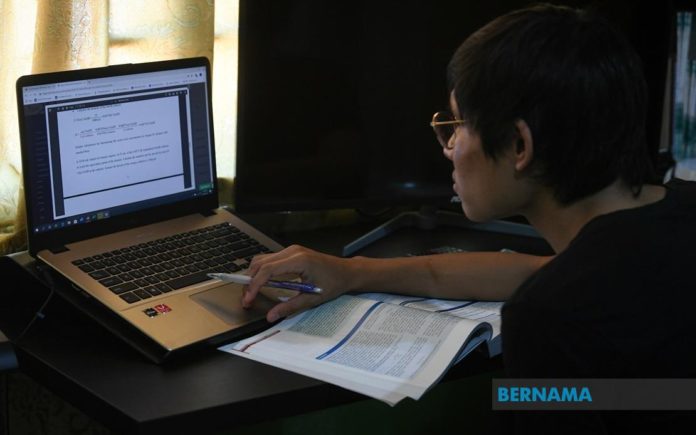Kuala Lumpur, 22 April 2020 – The implementation of the Movement Control Order (MCO) has provided teachers the opportunities to explore the use of digital technologies in education to ensure learning process among students continue uninterrupted.
Muslim Teachers Association (iGuru) Penang branch chairman Mohamad Syafiq Mohamad Sulaiman noted that there are many benefits through teaching and learning (P&P) online, with the dominant platforms being Google Classroom (GC) and Microsoft Teams.
“Both are the best facilitating platforms for teachers and students to conduct P&P especially during MCO,” he said when contacted by Bernama today.
He was commenting on report that Malaysia recorded the top most searched for GC keywords worldwide as reported in a news portal recently.
GC is an online teaching and learning software run by Google that is one of the platforms used by the Ministry of Education (MoE) in digital learning during the MCO period.
Meanwhile, Balik Pulau Mara Junior Science College (MRSM) Mathematics Department head Maisurah Amir said GC was very user-friendly and helped ease her workload as a teacher.
“For example, GC can record students’ attendance and scores of assignments or quizzes that conducted digitally. Teachers do not need to check whether students have submitted their assignments as the system will monitor and send the status to teachers.
Most of her students were satisfied with the software because the system would notify them immediately if new assignments have been uploaded by the teacher, so there was no reason for them to miss the assignment, she said.
Meanwhile, iGuru president Mohd Azizee Hasan hoped that the government could improve the speed of Internet access especially in rural areas as one of the main problems of GC is that it depends on the strength of the Internet server.
“MoE needs to look into this matter as we feel sorry for the students living in the rural areas as access to the Internet is still low. What important is the quality of the server itself,” he said.
He also hoped that the government could implement a special waqf (endowment) scheme to give smart devices to students, especially the poor and rural students.
“We often get complaints that some families can’t afford to buy smartphones, computers or the Internet access for their children to use.
“Therefore, MoE might collaborate with telecommunications companies to carry out this waqf scheme as an effort of bridging the digital divide between students who can and can’t afford it,” he said.
-BERNAMA







